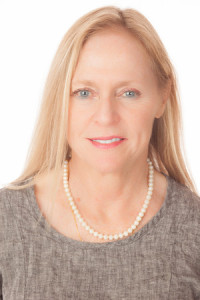The Empty Nest: Part I
By Elizabeth O’Brien, LPC-S
Many of us baby boomers are in the throes of launching our young adult children into the world. Whether the launch involves going off to college, getting first jobs, beginning serious careers, relocating to another part of the country, or simply moving into their own places, our older children are striking out, now, into an economy that is more robust than during the 2008-09 recession. Back then, many young adults had no choice but to continue living with mom and dad, or to boomerang back home post-college. At the very least, many were still receiving financial support.
What would have been an often poignant transition for parents, especially for primary caretakers, became a transition of another sort: how to deal with strapping, often frustrated, young adults in the house, in terms of shared chores, house rules, financial responsibilities, common consideration, and general expectations.
But now, it seems, our Western culture—which encourages children to leave home pre-marriage —once again prevails. Even boomerangers are beginning to move out. Jobs are more plentiful, and there seems to be a trend among millennials to live collectively, with multiple roommates, in order to achieve autonomy.
Parents, meanwhile, are grappling for equilibrium. When our children leave home, our lives change dramatically. We must begin to redefine ourselves. Whether or not we have careers outside the home, the absence of our children in our daily lives is a loss, and for many, a big one. It forces us to take stock, to re-evaluate our life purpose, to think about who we really are, beyond parenthood.
What now? is a common, albeit silent refrain. Who am I now, and how am I going to justify my existence? Obviously, this is much more visceral for primary caretakers, generally mothers who have given up their own, autonomous lives in the service of family. Such parents must often recreate themselves altogether.
How does one deal with a huge resume gap? How does a woman transition from the domestic, family life to the working world after a considerable absence? Inevitably, for women who have had the luxury to stay home with their children, or who were able to work part-time, getting back on the serious career horse requires further training and education. Often, tech skills are not up to snuff. The learning curve—in all arenas—can be daunting.
Beyond the practical, the issues of carving out a new identity are also psychological and spiritual. Whereas contribution, meaning and purpose are “built in” to child-rearing, we must come to terms with how to address these needs now that we are no longer essential in the same way. For the affluent, who don’t require a second income, volunteer work can become a fulfilling pursuit. But for those who must return to work, how do we even begin to find meaningful work? What if we don’t have the resources to pay tuition or training/certification fees? We can be faced, at midlife, with the prospect of unskilled labor—an occupation that is anything but resonant.
Whatever the particular situation, primary caretakers whose children are leaving home would do well to prepare for this transition well ahead of time: researching possibilities, assessing requirements, making a list of personal and professional contacts, attending workshops or seminars, volunteering for an entity they admire, and which might offer future job opportunities, and above all, taking time to contemplate and identify a new life purpose. Creating or joining a group of like-minded women in similar situations can be hugely empowering. Seeking short-term therapy or career counseling are other useful initiatives.
Taking charge, instead of being hijacked by the empty nest, is practicing self-care and resilience.
Coming Next—Part II:
How I Faced the Post-Mommy Abyss
 Elizabeth O’Brien holds a Bachelor of Arts in English degree from the University of Tennessee/Knoxville; and a Master of Arts in Counseling degree from St. Edward’s University in Austin. She is a Licensed Professional Counselor-Supervisor (LPC-S), with a private psychotherapy and supervision practice in Westlake. She also created and runs a pro bono counseling program at the Town Lake YMCA in downtown Austin. Ms. O’Brien worked as a journalist for many years in Florida and New York City before moving to Austin to raise a family. She is the co-author, with her husband, photographer Michael O’Brien, of The Face of Texas (University of Texas Press), a book of portraits and stories of Texans, both famous and “ordinary.”
Elizabeth O’Brien holds a Bachelor of Arts in English degree from the University of Tennessee/Knoxville; and a Master of Arts in Counseling degree from St. Edward’s University in Austin. She is a Licensed Professional Counselor-Supervisor (LPC-S), with a private psychotherapy and supervision practice in Westlake. She also created and runs a pro bono counseling program at the Town Lake YMCA in downtown Austin. Ms. O’Brien worked as a journalist for many years in Florida and New York City before moving to Austin to raise a family. She is the co-author, with her husband, photographer Michael O’Brien, of The Face of Texas (University of Texas Press), a book of portraits and stories of Texans, both famous and “ordinary.”
Visit her website: www.elizobrien.com


Recent Comments